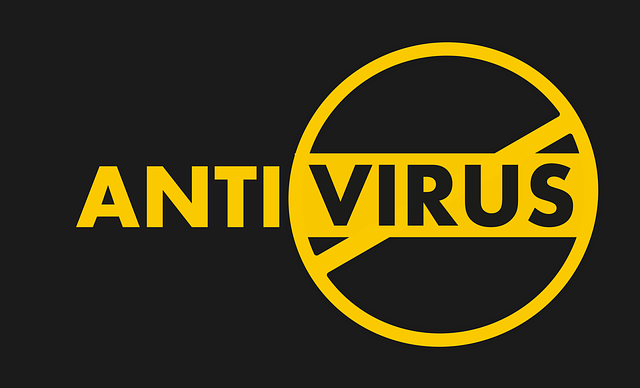Protecting Your Personal Information Online
The internet is an incredible place—full of opportunities, connections, and information. But let’s be real, it’s also a place where risks lurk around every corner, especially for women. Protecting your personal information online isn’t just a tech issue; it’s a personal one. Keeping your digital life secure is as important as locking your front door at night.
Women often face unique challenges online, from cyberstalking to identity theft. It’s crucial to be aware of these threats so you can navigate the digital world confidently. This isn’t about making you paranoid; it’s about empowering you with the knowledge to protect yourself. In an era where our lives are increasingly online, knowing how to guard your personal information is like having a superpower. With the right tools and habits, you can outsmart fraudsters and keep your data safe.
This article covers the essentials of online safety, from creating strong passwords to recognizing scams. You’ll learn how to protect your social media profiles, use technology to boost your security, and what actions to take if you ever fall victim to a cybercrime. Let’s dive in—because your safety matters, and you deserve to feel secure online.
Table of Contents
Safeguarding Personal Information

Passwords: Your First Line of Defense
Passwords are the first barrier between your personal information and those who wish to exploit it. Choose passwords that are long, random, and unique for each account. Avoid easily guessed options like birthdays or pet names. Consider using a password manager, a tool that acts like a digital vault, storing and even generating complex passwords for you.
Two-Factor Authentication (2FA)
Even the strongest password can be compromised, which is why two-factor authentication (2FA) is essential. With 2FA, even if someone cracks your password, they won’t get far without the second piece of the puzzle, typically a code sent to your phone. Enable 2FA wherever possible for an added layer of security.
Securing Social Media Profiles
Social media profiles are treasure troves of personal information. Adjust your privacy settings to control who sees what, and be cautious about the details you share. Oversharing can make you a target for identity theft, so think twice before posting.
Avoiding Phishing Scams
Phishing scams are one of the most common online threats. Scammers often pose as trusted entities to trick you into revealing sensitive information. If an email or message seems off, don’t click any links and definitely don’t enter personal info. Verify the source first—a quick call to the supposed sender can prevent a lot of headaches.
Securing Your Devices
Your devices are the gateways to your online life. Ensure they’re locked with a passcode and regularly update your software to patch security vulnerabilities. Consider using antivirus programs to protect against malware and other threats.
Being Cautious with Public Wi-Fi
Public Wi-Fi is convenient but often not secure. Avoid doing anything sensitive like online banking or shopping on these networks. If you must, use a Virtual Private Network (VPN) to encrypt your connection.
Recognizing and Avoiding Online Scams
Online scams are everywhere, and women are often specific targets. Spotting these scams early can save you from a lot of trouble.
Phishing Scams: Protecting Your Personal Information Online
These typically come in the form of emails or messages that appear to be from legitimate sources like your bank or even a friend. They’ll usually ask for personal info or direct you to a shady website. Always double-check the sender’s email address and never share your personal information unless you’re 100% sure.
Romance Scams
Scammers create fake profiles on dating sites or social media to build rapport with you and then ask for money, citing some emergency. If someone you’ve never met in person asks for financial help, it’s a major red flag.
Fake Online Shops
These may offer products at unbelievable discounts, but once you pay, you either get nothing or receive something substandard. Always research the website before making a purchase. Check reviews and see if the site has a physical address and real contact details.
Suspicious Giveaways and Contests
Be cautious with giveaways and contests on social media. Scammers often use these to collect personal information. If it sounds too good to be true, it probably is. Stick to verified accounts and never share more than necessary.
“You’ve Won” Scams
You might receive an email or pop-up saying you won a lottery or a prize you never entered to win. They’ll ask for personal details to “process your winnings.” Ignore these completely. Real winnings will never require you to pay upfront fees or provide sensitive personal info.
If you suspect you’ve encountered a scam, report it right away to the platform it appeared on or a dedicated cybercrime agency. The sooner you act, the safer everyone will be.
Protecting Yourself on Social Media
Social media can be a fantastic way to stay connected, but it’s also a hotspot for potential risks.

Managing Privacy Settings
Managing your privacy settings is critical. Make sure only friends and trusted followers can see your posts. Review these settings regularly since platforms often update them without much notice.
Handling Online Harassment
Online harassment is another concern. Blocking and reporting are your best defenses here. Don’t engage with trolls or harassers; it often only escalates things. Most social media platforms have built-in tools to help you deal with abusive messages or comments, so use them.
Being Mindful of What You Share
Being mindful of what you share can prevent a lot of headaches. Avoid posting your real-time location. It’s tempting to tag that cool restaurant you’re at, but it also broadcasts to everyone where you are. Share these details after you’ve left, if at all.
Evaluating Friend Requests and Followers
Not everyone who sends you a request has good intentions. If you don’t know the person, or if their profile looks suspiciously empty or odd, it’s best to ignore or block those requests.
Considering Your Digital Footprint
Your digital footprint is forever. Even if you delete a post, it doesn’t mean it’s truly gone. Screenshots and data archiving mean your content can live on in unexpected ways. Regularly review your past posts and delete anything that might not age well or could be used against you.
Using Technology to Enhance Online Safety
VPNs for Secure Browsing
VPNs, or Virtual Private Networks, are a game-changer for secure browsing. They mask your IP address and encrypt your internet connection, making it much harder for snoopers to track your online activities. Whether you’re on public Wi-Fi or simply want an extra layer of privacy at home, a VPN is a solid investment.
Antivirus Software
Antivirus software is another crucial tool in your online safety toolkit. These programs can detect and eliminate malware before it wreaks havoc on your system. Make a habit of running regular scans and keep the software updated to protect against the latest threats.
Browser Security Settings
Your browser’s security settings can also make a big difference. Most browsers have features like pop-up blockers and tracking protection. Explore these settings and adjust them to maximize your security. Browser extensions like ad-blockers and privacy-focused add-ons can further enhance your protection.
Smart Downloading Habits
Be cautious about what you download and where it comes from. Stick to reputable websites and avoid pirated content, which often harbors malware. Always scan downloaded files with your antivirus software before opening them.
Firewalls and System Updates
Enable firewall protection on your devices. Firewalls act as a barrier between your device and potential threats from the internet. Combine this with antivirus software and a VPN for a robust defense system. Regularly updating your operating system and apps is crucial, as updates often include security patches that fix vulnerabilities. Set your system to update automatically so you never miss an important patch.
What to Do If Your Personal Information is Compromised
If you suspect that your personal information has been compromised, act quickly. The sooner you address the issue, the better.

Change Your Passwords
Start by changing the passwords of your affected accounts. Opt for strong, unique passwords and enable two-factor authentication to add an extra layer of security.
Contact Financial Institutions
If you think your financial information has been exposed, contact your bank or credit card company. They can monitor for suspicious activity and freeze your accounts if needed. It’s also wise to check your recent transactions for unfamiliar charges.
Report the Breach
Report the breach to relevant authorities. For cybercrimes, this could be your local police or a dedicated cybercrime unit. If the issue involves a service provider, like your email or social media platform, get in touch with their support team to report the incident and get guidance.
Monitor Your Credit Report
Keeping tabs on your credit report can help you spot any fraudulent activity early. You can request a free report from major credit bureaus annually. Consider placing a fraud alert or credit freeze on your file to prevent new accounts from being opened in your name.
Consider Identity Theft Protection Services
These services can monitor your personal information across the web and notify you of suspicious activity. Some even offer recovery assistance, guiding you through the steps to reclaim your identity and secure your information again.
Learn from the Experience
Finally, learn from the experience. Reflect on what went wrong and how you can improve your online habits. Staying informed about common security threats and adopting proactive measures can significantly reduce the risk of future incidents. Remember, online safety is an ongoing process, not a one-time fix.
I hope you found this content both enjoyable and informative. Feel free to leave any comments or questions you might have. Also, consider reading my article on the Top 10 Safety Tips for Online Dating.
Furthermore, check out my other website for detailed reviews of trending products.

